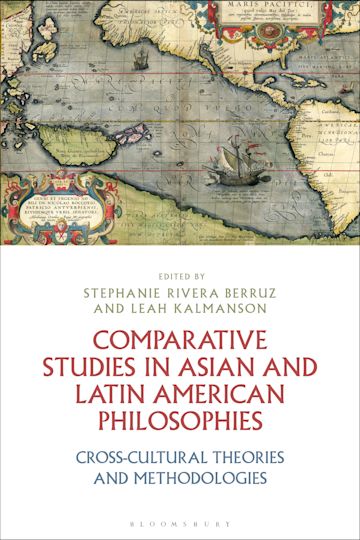Writer, Educator, World Traveler.
Biography
Dr. Rivera Berruz is an Associate Professor at Marquette University (Milwaukee, WI). Her research is interdisciplinary and explores historiography, social identity, and current political issues that link power, history, identity, and the environment. She received her PhD in philosophy from SUNY Buffalo in 2014 working under Dr. Jorge J.E. Gracia and is the recipient of the American Philosophical Society Franklin Research Grant (2024-2025), The Way Klinger Young Scholar Award (2021), and the Woodrow Wilson Career Enhancement Fellowship (2017-18) for work on Latinx feminisms, Caribbean, and Latin American philosophy.
She has published a co-edited anthology, Comparative Studies in Asian and Latin American Philosophies (2018), and hjer work has been featured in the Stanford Encyclopedia of Philosophy, Genealogy, Hypatia, The Inter-American Journal of Philosophy, and Essays on Philosophy. She is currently working on a monograph titled On the Border of Belonging: Luisa Capetillo, Ofelia Rodríguez Acosta, and Evangelina Rodríguez Perozo, under contract with Rutgers University Press. She explores lettered Caribbean women from Puerto Rico, Cuba, and the Dominican Republic who wrote about the role of women in political life at the turn of the 20th century in the Hispanophone Caribbean.
Dr. Rivera Berruz was born in San Juan Puerto, Rico and a subject of the Puerto Rican diaspora having in numerous places in the United States. She credits her migrations as inspirations for interests in philosophies that explore the myriad dimensions of identity and experience, including the traumas of displacement. Committed to the connection between theory and praxis, she is an ardent world traveler seeking to learn from the world deeply and fully. She is a lover of dance and the natural world, with a special place in her heart for water and trees.

Comparative Studies in Asian and Latina American Philosophies
Comparative philosophy is a site for the study of non-Western philosophical traditions, but it has long been associated with “East-West” dialogue. Comparative Studies in Asian and Latin American Philosophies shifts this trajectory to focus on cross-cultural conversations across Asia and Latin America. Together the essays reflect the philosophical diversity of Asia and Latin America while foregrounding their shared concerns on issues of Eurocentrism and coloniality. By bringing these critical perspectives to bear on the theories and methods of cross-cultural philosophy, Comparative Studies in Asian and Latin American Philosophies offers new insights into the nature and practice of philosophical comparison.